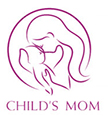Congratulations on embarking on the exciting journey of preparing for pregnancy! Whether you’re planning your first child or expanding your family, being well-prepared physically, emotionally, and financially can make a significant difference in the overall experience. Let’s dive into the best ways to ensure you are fully prepared for this beautiful chapter in your life.
Introduction
The journey to parenthood is both thrilling and challenging. Understanding the best ways to prepare for pregnancy is crucial to ensure a smooth and healthy experience for both partners. Here, we’ll explore comprehensive steps to help you navigate the preconception period with confidence.
Health and Nutrition
Balanced Diet for Both Partners
Maintaining a balanced diet is fundamental when preparing for pregnancy. Both partners should focus on a variety of nutrients, including fruits, vegetables, whole grains, and lean proteins. A well-rounded diet lays the foundation for a healthy reproductive system.
Importance of Folic Acid
Folic acid plays a vital role in preventing neural tube defects in the developing fetus. It is advisable for women to start taking folic acid supplements before conception. Foods rich in folate, such as leafy greens and legumes, should also be included in the diet.
Staying Hydrated
Adequate hydration is often overlooked but is essential for reproductive health. Water helps maintain the body’s balance, aids in nutrient absorption, and supports overall well-being.
Regular Exercise
Suitable Exercises for Prospective Parents
Engaging in regular, moderate-intensity exercises benefits both partners. Activities like walking, swimming, and yoga contribute to overall fitness and help manage stress.
Benefits of Maintaining a Healthy Weight
Maintaining a healthy weight is crucial for fertility. Being underweight or overweight can affect hormonal balance and reproductive functions. Achieving and maintaining an optimal weight enhances the chances of a successful pregnancy.
Preconception Checkup
The Significance of Preconception Health Assessments
Before attempting to conceive, both partners should undergo a preconception health checkup. This ensures that any existing health issues are addressed, and necessary steps are taken to optimize reproductive health.
Consulting with Healthcare Professionals
Seeking guidance from healthcare professionals is essential. They can provide personalized advice based on individual health conditions, offer fertility assessments, and address any concerns you may have.
Lifestyle Adjustments
Eliminating Harmful Habits
Say goodbye to harmful habits like smoking and excessive alcohol consumption. Both can adversely impact fertility and harm the developing fetus. Quitting these habits significantly contributes to a healthier pregnancy.
Stress Management Techniques
Managing stress is crucial during the preconception period. High stress levels can interfere with reproductive hormones. Incorporate stress-reducing activities such as meditation, deep breathing, or hobbies you enjoy.
Understanding Menstrual Cycle
Tracking Ovulation for Optimal Conception
Understanding your menstrual cycle and tracking ovulation enhances the chances of conception. Numerous apps and tools are available to help determine the most fertile days of your cycle.
Recognizing Fertility Signs
Learn to recognize fertility signs, such as changes in cervical mucus and basal body temperature. These indicators provide valuable insights into the best time for conception.
Supplement Guidance
Recommended Supplements for Both Partners
In addition to folic acid, consider other supplements such as iron, calcium, and vitamin D. Consult with a healthcare provider to determine the right supplements for your individual needs.
Consulting with a Healthcare Provider for Personalized Advice
Every individual’s nutritional needs are unique. Consulting with a healthcare provider ensures you receive tailored advice based on your health, lifestyle, and specific requirements.
Environmental Considerations
Minimizing Exposure to Toxins and Pollutants
Create a fertility-friendly environment by minimizing exposure to toxins and pollutants. Be mindful of household cleaning products, personal care items, and environmental factors that may affect reproductive health.
Creating a Fertility-Friendly Environment
Consider factors such as temperature, air quality, and exposure to radiation. Ensuring a safe and supportive environment enhances the chances of a healthy pregnancy.
Emotional Well-being
Addressing Anxiety and Emotional Readiness
Preparing for pregnancy involves addressing emotional well-being. If anxiety or stress is a concern, consider seeking support from a counselor or therapist. Emotional preparedness is as vital as physical readiness.
Building a Strong Support System
Surround yourself with a strong support system. Share your feelings and concerns with your partner, friends, and family. Having a reliable support network can make the journey more enjoyable and less stressful.
Financial Planning
Evaluating the Financial Aspects of Parenthood
Parenthood comes with financial responsibilities. Evaluate your current financial situation and plan for the costs associated with prenatal care, childbirth, and the early stages of parenting.
Creating a Budget for Prenatal Care and Beyond
Create a budget that includes medical expenses, baby essentials, and potential changes in income during maternity or paternity leave. Planning ahead financially alleviates stress during the pregnancy journey.
Educational Resources
Accessing Reliable Information on Pregnancy and Parenting
Stay informed by accessing reliable resources on pregnancy and parenting. Books, websites, and prenatal classes provide valuable information to help you navigate this transformative period.
Enrolling in Prenatal Classes
Prenatal classes offer practical knowledge and support. Enroll in classes that cover topics such as childbirth, breastfeeding, and newborn care. These classes prepare you for the challenges and joys of parenthood.
Communication and Relationship
Open Communication Between Partners
Maintaining open communication with your partner is essential. Discuss your feelings, expectations, and concerns about parenthood. A strong emotional connection contributes to a healthier relationship during this transformative time.
Strengthening the Emotional Bond
Engage in activities that strengthen your emotional bond. Spend quality time together, express your emotions, and support each other through the ups and downs of the preconception journey.
Preventing and Managing Medical Conditions
Identifying and Addressing Existing Medical Conditions
Identify and address any existing medical conditions that may affect fertility or pregnancy. Consult with specialists to manage conditions such as diabetes, thyroid disorders, or reproductive health issues.
Managing Chronic Illnesses During Pregnancy
If you or your partner have chronic illnesses, work closely with healthcare providers to manage them during pregnancy. Regular checkups and a proactive approach contribute to a healthier pregnancy.
Creating a Comfortable Home Environment
Preparing the Home for a New Arrival
Prepare your home for the arrival of your little one. Create a comfortable and safe space, organize baby essentials, and ensure your home is conducive to a positive and nurturing environment.
Safety Considerations
Evaluate safety aspects such as baby-proofing the house, securing furniture, and checking for potential hazards. A safe home environment is crucial for the well-being of both the expecting parents and the baby.
Post-conception Lifestyle Adjustments
Adjustments to Diet, Exercise, and Lifestyle During Pregnancy
Once conception occurs, make necessary adjustments to your lifestyle. This includes modifications to your diet, exercise routine, and overall daily activities. Consult with healthcare providers for guidance on these adjustments.
Emotional and Physical Support During the Pregnancy Journey
Pregnancy is a transformative time that requires emotional and physical support. Be attentive to your partner’s needs, communicate openly, and seek professional support if necessary. A supportive environment contributes to a positive pregnancy experience.
Conclusion
Preparing for pregnancy involves a holistic approach encompassing physical, emotional, and lifestyle considerations. By following these best practices, you can enhance your chances of a healthy and joyous pregnancy. Remember, every journey is unique, so consult with healthcare professionals for personalized guidance.
FAQs
- How long should we track ovulation before attempting to conceive?
- Ovulation tracking can vary, but it’s generally advisable to track for a few months to understand your cycle better.
- Are there specific exercises to avoid during preconception and pregnancy?
- Consult with a healthcare provider to determine exercises suitable for your individual health and fitness level.
- When should we start taking prenatal supplements?
- Ideally, start taking prenatal supplements a few months before attempting to conceive for optimal benefits.
- Can stress impact fertility for both partners?
- Yes, high stress levels can affect fertility in both men and women, so stress management is crucial.
- Is financial planning essential before pregnancy?
- Yes, evaluating and planning for the financial aspects of parenthood is an important step in preparation.
Now you know more information about best ways to prepare for pregnancy.

